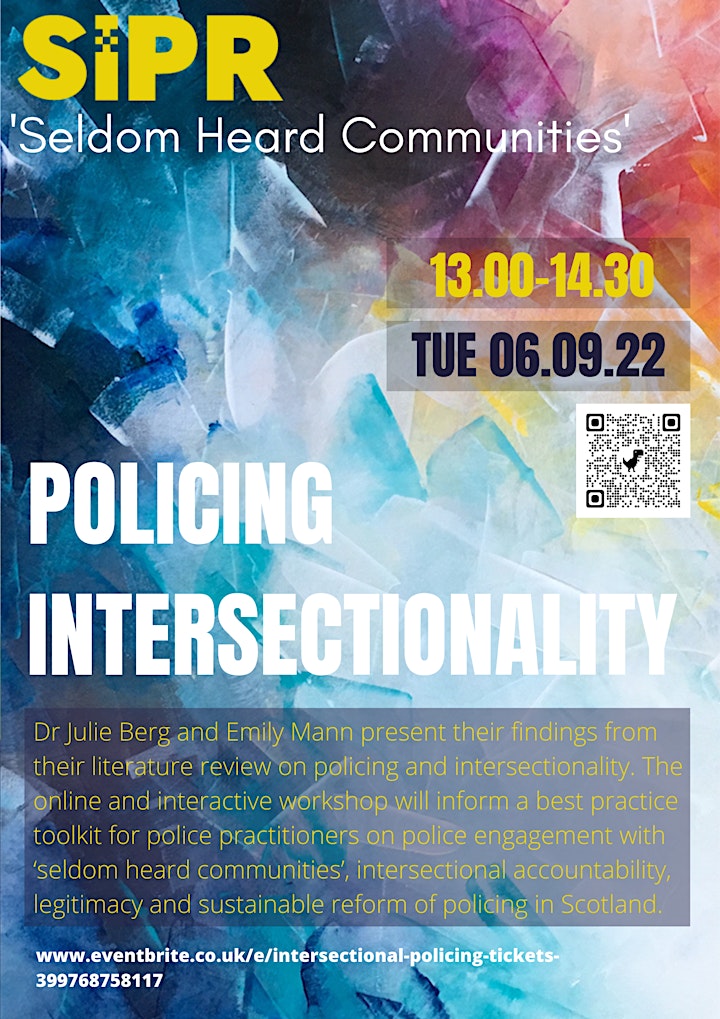
Dr Julie Berg and Emily Mann present their findings from their literature review on policing and intersectionality. This online and interactive workshop will inform a best practice toolkit for police practitioners on police engagement with ‘seldom heard communities’*, intersectional accountability, legitimacy and sustainable reform of policing in Scotland.
This workshop and research is of interest to policing scholars, feminist researchers, anyone interested in intersectionality, sociologists, criminologists and abolitionists alike as well as those working in wider organisational, policy and reform issues.
We welcome feedback and look forward to sharing our findings!
This workshop is part of a project funded by the Scottish Institute of Police Research’s Seldom Heard Community Grant entitled “Accounting for Complexities: An Intersectional Approach to Enhancing Police Practitioner Accountability, Legitimacy & Sustainable Reform”
Intersectionality is a tool and critical lens to illuminate how multiple inequalities intersect. It has become a buzzword in equality and diversity discourse among academics, policymakers and practitioners alike, yet it is often misunderstood or applied in a performative, surface-level way. It presents unique challenges to police organisations that operate in fixed silos. Issues relating to inequalities, vulnerabilities, and structural oppressions are often approached as discrete categories. Yet the reality of lived experiences is far more complex and nuanced. Intersectionality challenges regimented and fragmented thinking and offers an alternative and improved analytical and interrelated approach to engagement. An intersectional understanding of ‘seldom heard communities’ is crucial for service users to engage in genuine dialogue and to have meaningful contact and input with decision making.
In light of this, the project aims to develop an intersectional good practice tool kit by which to provide guidance on how Police Scotland can better engage with ‘seldom heard communities’. The tool kit is informed by a literature review on intersectionality including the meanings and applicability of this term when policing ‘seldom heard communities’. The project will also run consultative workshops aimed at facilitating dialogue amongst academics, practitioners, policing and community organisations and networks, to further enhance the tool kit. In this way, the project seeks to inform Police Scotland’s objective to increase engagement with ‘seldom heard communities’ through consideration of the necessity of policing with an intersectional lens to develop meaningful and effective long-term public engagement. This is a foundational pillar to sustainable reform and constructive accountability as well as towards enhancing police legitimacy.
*‘Seldom Heard Communities’ is a term employed by Police Scotland to “refer to under-represented people who may be less likely to engage with Police for a variety reasons (such as race, religion, sexuality, disability, age and communities isolated through geography or deprivation)… [to] place more of an emphasis on Police Scotland and [their] collaborators to connect with these communities ensuring their voices are heard; their needs are met; and their perspectives are understood.”

read more about SIPR’s ‘seldom heard community’ grant here www.sipr.ac.uk/news/announcement-of-seldom-heard-community-grant-recipients/
